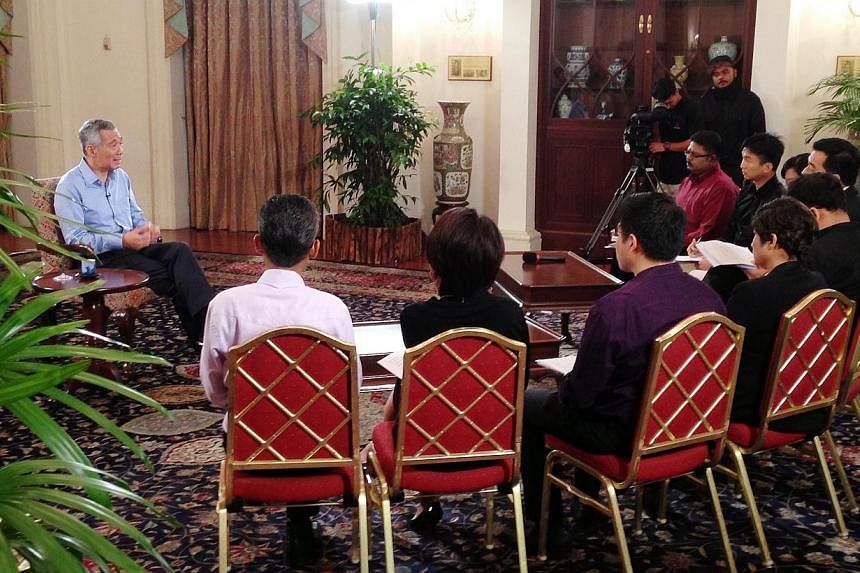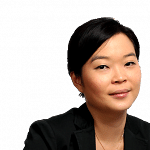SINGAPORE - In an interview with local media this week, Prime Minister Lee Hsien Loong reflected on his 10 years in the country's top post and spoke about the challenges and tensions facing the nation as it moves into the next 50 years.
PM Lee's overview of his 10 years as Prime Minister:
"I would break down the 10 years into three segments. The first is from 2004 when I took over till 2007 when the financial crisis came. We were recovering from Sars. The economy was gradually picking up, developing momentum and we were catching the wind while the sun was shining and doing quite well.
Then the financial crisis came - 2008. It was a very turbulent time for us. It was unsettling - a sudden dip - and frightening, followed by a quick recovery, which was unexpected.
In the end we had a tremendous rebound. We should be happy with that but it caused infrastructure problems, we ran into housing concerns. And that led to other new difficulties.
The third phase would be from 2011 onwards after the General Elections. There is a new team in charge, new expectations among the electorate, and further shifting of our emphasis.
(We are) continuing on economic growth but (placing) further emphasis on social safety nets, health, giving people an extra hand up and making sure that we make progress forward together."
On his biggest achievement as Prime Minister:
"Putting a lot of emphasis on education. Right from the beginning, at my first National Day Rally, one of my themes was on the young.
We were talking about schools - teach less, learn more - and getting people to get the maximum out of their education.
We have followed through on that in many ways - investing in schools, Edusave, increasing resources for the principals, making sure every school is a good school, developing tertiary education, building up ITEs.
So I think it is not a single decision but a continuing, consistent emphasis over a long period of time."
And on his biggest regret:
"In retrospect, it is easy to say that we should have been building up our infrastructure a lot faster, that we should have got our trains running, we should have built more HDB flats.
At the time we thought we were doing the right thing, pacing it, measuring it out, building it when we needed it and not spending resources until we needed to spend them.
It turned out that things did not pan out the way we expected. I think that we have to plan in future less conservatively and try to be less precise in our prognostications."
On how social media has changed his governing style:
"It makes me a lot more conscious in pitching what I want to say, to ask myself how will I distil this down in a form which someone can digest on Facebook or Instagram?
You cannot always be putting out long learned dissertations on some cosmic issue or another. There are times when you have to be light hearted, when you see a beautiful sunset you share it with people and hope they will enjoy it with you.
When you catch an owl somewhere in Istana, maybe somebody else is interested in the owl. It is something unusual and personal.
But it is also necessary to have serious response and content as well. For example, (on Tuesday) I went to speak to a civil service seminar about the importance of keeping our system corruption free. I posted on Facebook and Instagram.
I do not expect as many hits as when I put an owl up or even a picture up, but I think it is important that I do that, and I think it has some impact."
On dealing with the tensions between Singaporeans and foreigners:
"We have to talk about it on both sides, with Singaporeans to understand why it is necessary (to have foreigners here) and how we are adapting our policies to minimise the impacts and the side-effects.
"But with the foreigners too - what are the rules when you come here, when you live here, you are living in Singapore, you have to comply with Singapore, fit in with Singapore norms and customs, and not the norms and customs of your own country.
It takes a while. There will be some people who will behave badly on both sides. Some Singaporeans rant away. Some foreigners occasionally rant away.
There was one person this last couple of weeks working in Tan Tock Seng, who has been fired (for inappropriate remarks about Singaporeans). But we should not let these bad behaviours affect the overall relationship.
Amongst ourselves, we know the limits and between different religions, between different races, everybody knows there is good behaviour, what is good behaviour, what is unacceptable behaviour.
I think we need to develop those norms also between the Singaporeans who are native born, who have been here a long time and those who are not so long here and those who are visiting or working here but not Singaporeans."
On Singaporeans looking to the Government to solve all their problems:
"We have to take a somewhat detached view of issues so that when issues come up, our first instinct is not (to have the) Government do something about it.
Whether it is a problem with rats in the neighbourhood, whether it is a problem with feeding of birds and therefore other vermin turn up, whether it is a problem with neighbours upstairs, downstairs, the Government should be the last recourse, and should not be the first recourse.
Residents' Committees (RC) and the Neighbourhood Committees (NC) of course do a lot of work.
But there are many other groups which get together and look out for their interests. For example, when we have a new HDB neighbourhood precinct and people are beginning to get ready to move in, before any RC is formed, there is already a Facebook group, and they will share information about where to get the best curtains, which interior decorator is good, who gives you good value, who is to be avoided and when to get together to go and see the new MP and ask for something which is not fixed.
But actually you ought to organise to get things done, not organise to ask the government to do things."
On criticisms of having too much pressure in the education system:
"I think it is important that we do take education seriously. If parents were unconcerned about their children's education - it does not matter whether you do well or not, does not matter whether you do your homework or not - we would have another set of problems.
But we also would like people to have a holistic education. It is not just grades; it is also your character, your leadership training, your exposure, your understanding of the world, understanding of the society we live in. That does not come so easily from classroom, from books, or from tutorials or tuition. I think we need to pay more emphasis on that.
I think that collectively we put too much emphasis on tuition. We think that if we hothouse our children, it will make all the difference. I am not so sure. I can understand the concerns of the parents who want to give their children the best but we also want to give the children the time and the space to grow up."
Message for Singaporeans as the nation kicks off SG50 celebrations:
"We must use this (SG50) as a jump-off point, not as a final destination.
The 50th year is a good time for us. It is like reaching the end of a 50-metre swim. I touch (the wall), I take a breath and I swim on.
And I think swimming on, we have to set broader targets but one common element will be that in Singapore we have a home, in Singapore we have a future, and in Singapore our children can grow up and do well. We can work together to do that."


